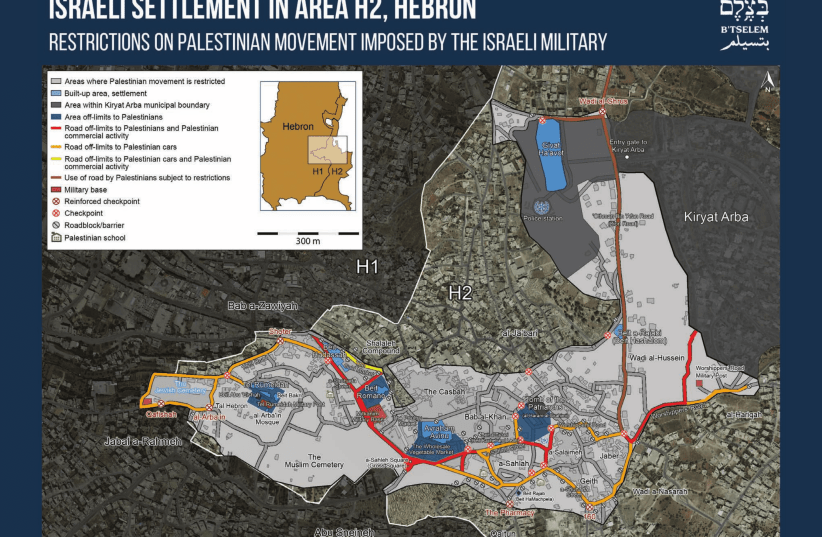The policy, that – according to B'tselem – violates the prohibition against forcible transfer, which constitutes a war crime, has "made life unbearable for the Palestinian residents of Hebron's city center," and relies on a regime of separation between the city's Jewish and Palestinian residents, first implemented after the Cave of Patriarch massacre.
On February 25, 1994, Baruch Goldstein, a Brooklyn-born Orthodox Jew from the settlement of Kiryat Arba that lies east of Hebron and a member of the extremist Kach party, entered the Ibrahimi Mosque in the Cave of Patriarchs armed with an assault rifle, slaughtering 29 Palestinians and wounding 125 more. The survivors of the massacre beat Goldstein to death. Kach was classified as a terrorist organization shortly after the massacre.
In the aftermath of the massacre, which took place on Purim, the IDF shut down the shops on the Shuhadah Street, which links the Cave of Patriarchs with the Jewish complexes in the city. According to B'tselem, the street has since been off-limits to Palestinians and Palestinian commercial activity.
B'tselem claims that the regime of separation and the closure of the city center to Palestinian movement caused a forced departure of thousands of Palestinians from Area H2, which is under full Israeli military control, disturbing its natural population growth. Since the Hebron Agreement was signed in January 1997, the Population of Area H1, which is controlled by the Palestinian Authority, saw a 45% increase from 115,000 to 166,000 residents, while the population of Area H2 dropped from 35,000 to 34,000 residents, the organization reported.
The separation regime between the city's Jewish and Palestinian residents is based on a system of travel restrictions that creates a corridor within the city that is partly or fully off limits to Palestinian vehicles and pedestrians, burdening the Palestinians' routine daily activities such as shopping, visiting relatives or going to school with crossing at least one of the 22 checkpoints and 64 "physical obstructions of various types" the IDF has installed in Hebron, the NGO says.
Tovah Lazaroff contributed to this report.
